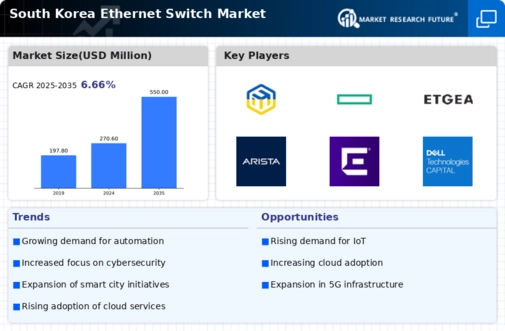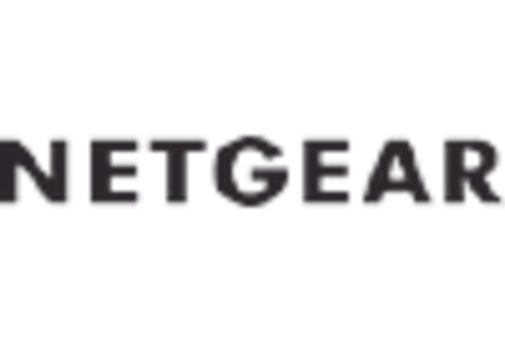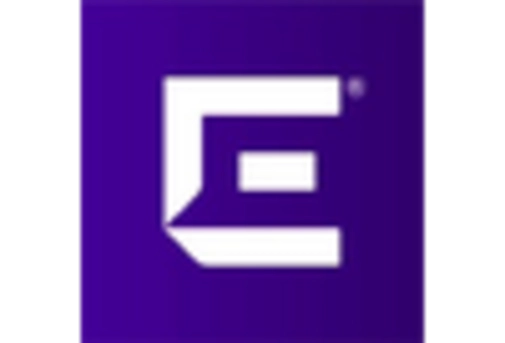South Korea Ethernet Switch Market Summary
The South Korea Ethernet Switch Market is projected to grow significantly from 270.6 USD Million in 2024 to 550 USD Million by 2035.
Key Market Trends & Highlights
South Korea Ethernet Switch Market Key Trends and Highlights
- The market is expected to experience a compound annual growth rate (CAGR) of 6.66 percent from 2025 to 2035.
- By 2035, the market valuation is anticipated to reach 550 USD Million, indicating robust growth potential.
- In 2024, the market is valued at 270.6 USD Million, reflecting a solid foundation for future expansion.
- Growing adoption of Ethernet technology due to increasing demand for high-speed internet is a major market driver.
Market Size & Forecast
| 2024 Market Size | 270.6 (USD Million) |
| 2035 Market Size | 550 (USD Million) |
| CAGR (2025-2035) | 6.66% |
Major Players
Mikrotik, Hewlett Packard Enterprise, Netgear, Arista Networks, Extreme Networks, Brocade Communications Systems, Dell Technologies, ZTE Corporation, TPLink, Juniper Networks, Cisco Systems, DLink, Huawei Technologies


















